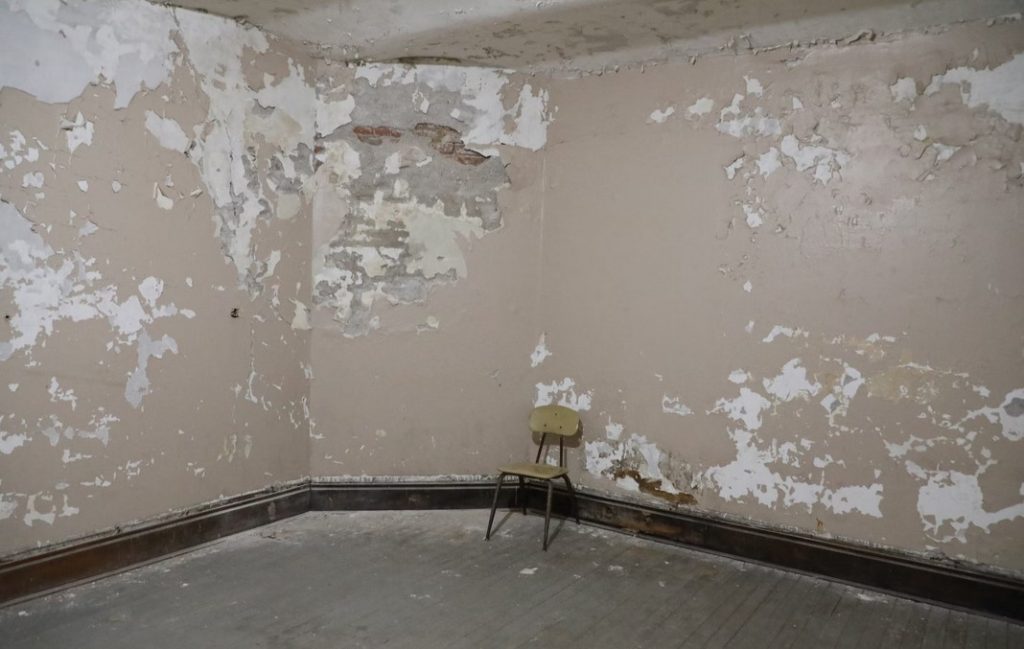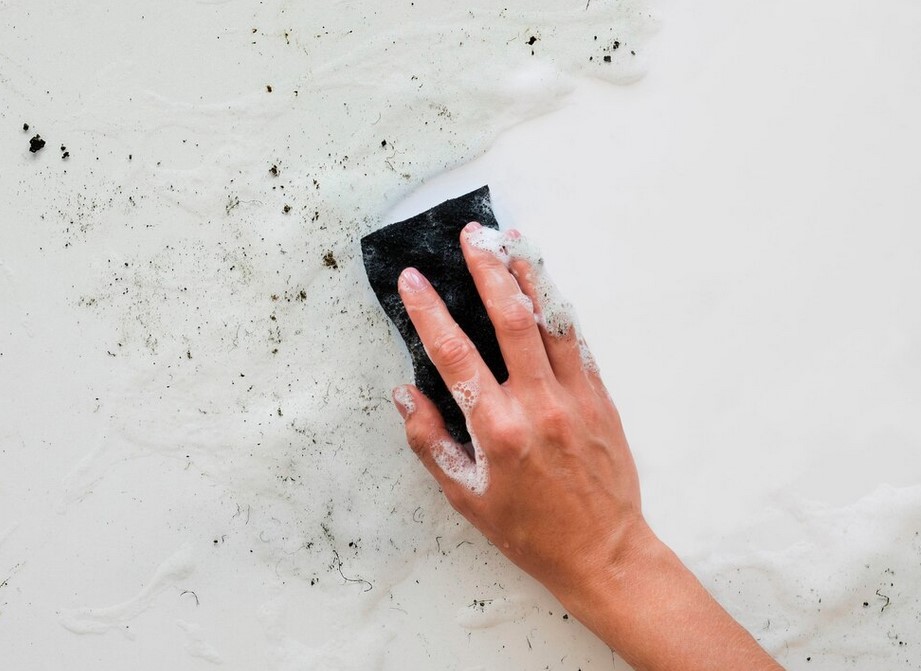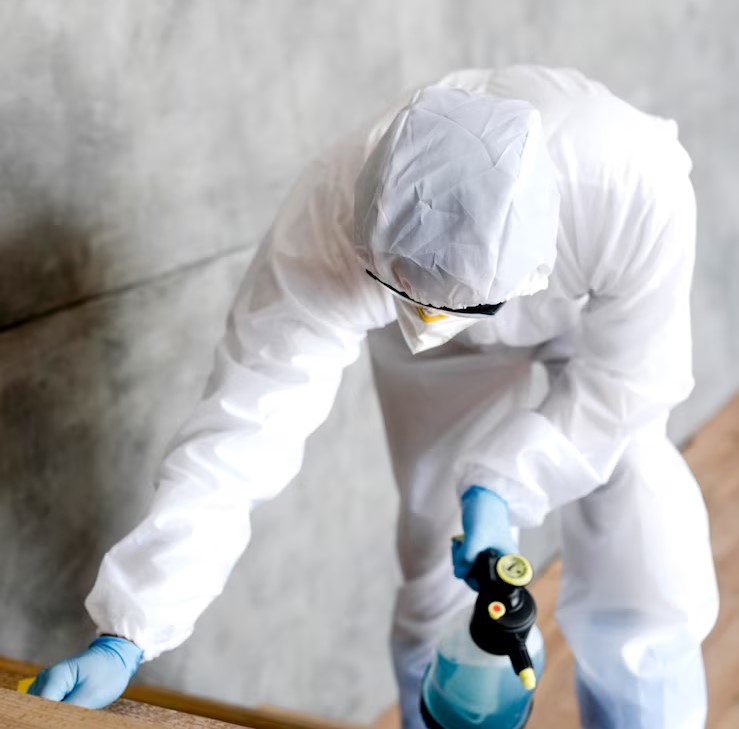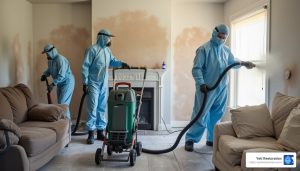A few years ago, we were called to help after a small house fire. The fire was put out when a firefighter who lived across the street
ran over and put it out with the kitchen faucet – true story!
The water used was not great in volume, but the homeowners temporarily moved out because of the smoke damage. The water sat on
the floor, seeping into the hardwood, and wicking up the drywall.
By the time we were engaged, the hardwood was beyond saving, and some interesting mold had started to grow between the hardwood and the subfloor. The drywall behind the oven had “turned” and the baseboards and framing had mold growth or “settled spores” on them.
All of this was a well contained contiguous ten square feet of mold (within range for the EPA’s DIY/ Homeowner guidelines), but the homeowners requested our help because of the complexity of the rest of the scope.
There was an obvious need for containment and negative air in this remediation project, and for drying equipment for the substrates that would not sensibly be removed. Of course, A subfloor (for example) that’s been wet might be stained by mold pigments, but it’s not considered dangerous when professionally cleaned.


So, could you DIY this mold concern?
Great question. And we’ve been blessed to remediate mold for major governmental organizations, and actually been able to ask this question directly to the key players in this field of study.
Here’s what everyone agrees you can DIY:
Up to ten contiguous square feet of mold.
But if you’re going to do it, don’t spray bleach at it.
Not after you’ve read our other articles, and know what you know, now 🙂

Steps to consider:
- PPE for your face
- PPE for your house
- HEPA, HEPA, Damp Wipe.
Safe disposal and clean-up.
No wet chemicals everywhere.
No craziness.
If it’s small, don’t think too big.
You’ve got this.
And you can always call us for help with your interior mold remediation project: 513 280 5800 🙂
Adapted from the book: Yeti’s Eat Mold for Breakfast, first published 2022
We can also help with fire damage restoration services! just reach out!





